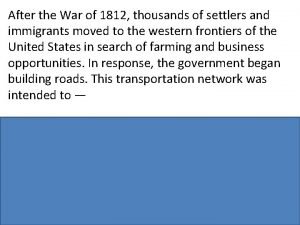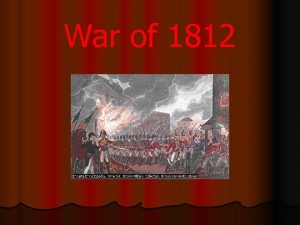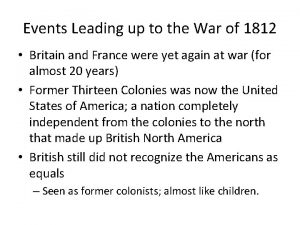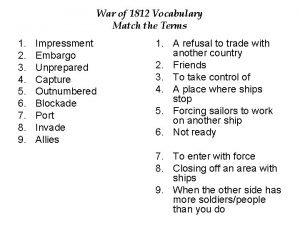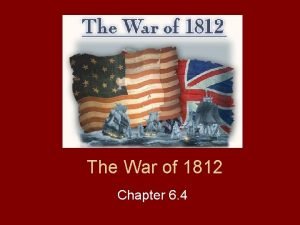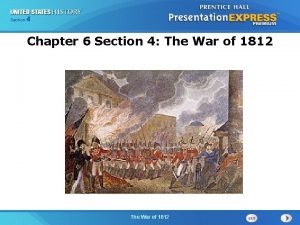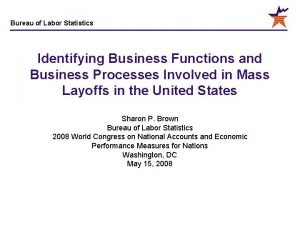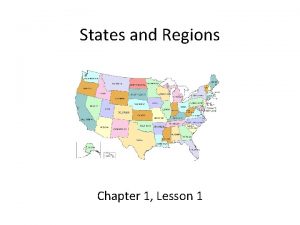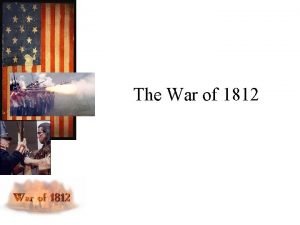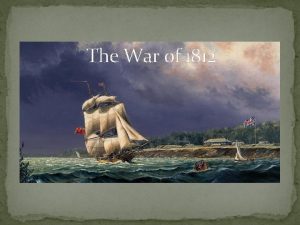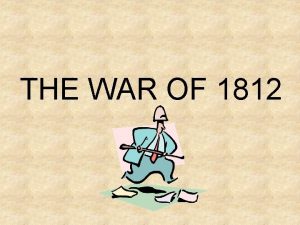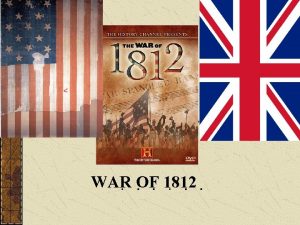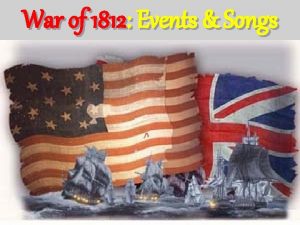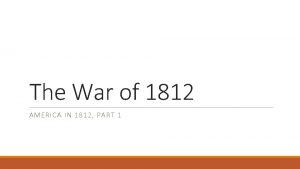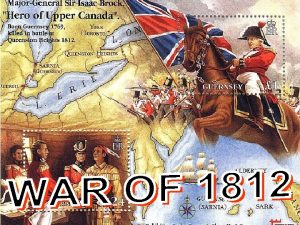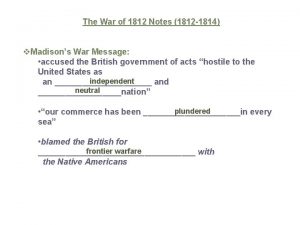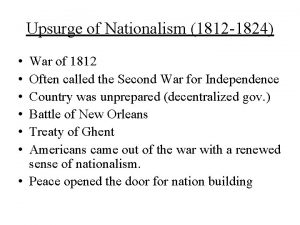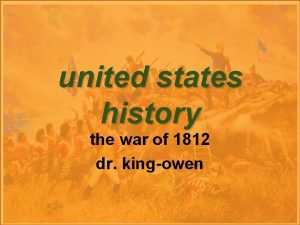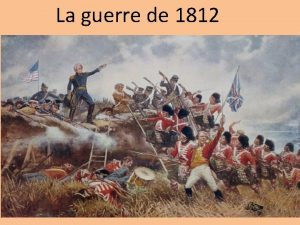The United States After the War of 1812
















- Slides: 16

The United States After the War of 1812: A New Nationalist Identity

What is Nationalism • After the War of 1812, the U. S developed a new sense of nationalism: • The definition of nationalism: • National spirit or aspirations • Devotion & loyalty to one’s own nation; patriotism

Era of Good Feelings • Only one political party: Democratic. Republicans; • Hartford Convention & War of 1812 killed the Federalists • James Monroe president during Era of Good Feelings

How Did Nationalism Affect Economic Policies • Henry Clay proposes the American System • Marshall & the Supreme Court Boost Federal Power • Interconnected market produces periodic economic shocks or Panics

The American System • Henry Clay's American System proposed high tariffs and a federal program for public works • Wealth produced by tariffs would enable northerners to buy farm products from West and South: Interconnected Markets • Plan didn't work because southerners weren’t convinced that plan would benefit them.

Cornerstones of the American Plan: National Self-Sufficiency & National Unification • The American System would create a selfsufficient country because industrial New England would produce products out of the raw materials shipped from the South and West, and all areas of the country would benefit from it. • Henry Clay's American System would help to unify the different parts of the states by having them rely on each other instead of foreign relations. New England would be able to buy products that the South produced, such as cotton and tobacco.

Marshall & the Supreme Court Boost Federal Power • Court Cases that expand the federal government & promote a national economy • Marbury v. Madison (1803): Judicial review • Dartmouth College v. Woodward (1819) & Fletcher v. Peck (1810): Sanctity of contracts • Mc. Colloch v. Maryland (1819): Congress can charter a national bank & no state can tax it • Gibbons v. Ogden (1824) Federal govt. regulates interstate commerce

The Theme of the Marshall Court • Marshall’s Court encouraged the development of large, far-flung business corporations by freeing them from meddling by the states • U. S. increasingly became one large integrated market

Integrated Market Means the Whole Country Shares in Good & Bad Times • Bad times are called “Panics” • Capitalism has boom &bust cycles • During boom period, great demand for goods; when supply outstrips demand, then bust • Three panics between 1815 -1860; 1819, 1837 &1857

Nationalism Influences Art & Literature: American Renaissance

The Hudson School

Nationalism Influences Foreign Affairs • American pressure & Adams diplomacy persuades Spain to sell FLA to the U. S. • Jackson invades Florida • Adams-Onis Treaty • Spain gives control of FLA to U. S. • Spain gives up claims to Oregon Territory

The Monroe Doctrine • U. S. tells European nations that western hemisphere not open to further colonization • Written by Monroe’s Secretary of State John Quincy Adams (1823)


Nation Compromises Over Slavery: The Missouri Compromise • Regional differences do rear their ugly heads • Crisis over Missouri’s admission into the Union as a slave state • Maine enters the Union as a free state and limits placed on where slavery can expand

 After the war of 1812 thousands of settlers and immigrants
After the war of 1812 thousands of settlers and immigrants Section 4 the war of 1812
Section 4 the war of 1812 War of 1812 dbq
War of 1812 dbq War of 1812 free seas and trade
War of 1812 free seas and trade Leading up to the war of 1812
Leading up to the war of 1812 War of 1812 vocabulary
War of 1812 vocabulary War of 1812 apush
War of 1812 apush Cast your vote war of 1812 answer key
Cast your vote war of 1812 answer key The war of 1812 chapter 6 section 4
The war of 1812 chapter 6 section 4 Chapter 6 section 4 the war of 1812
Chapter 6 section 4 the war of 1812 Josette dugas
Josette dugas After me after me after me
After me after me after me After me after me after me
After me after me after me United states bureau of labor statistics
United states bureau of labor statistics When mr pirzada came to dine answer key
When mr pirzada came to dine answer key United states lactation consultant association
United states lactation consultant association 5 regions of united states
5 regions of united states
